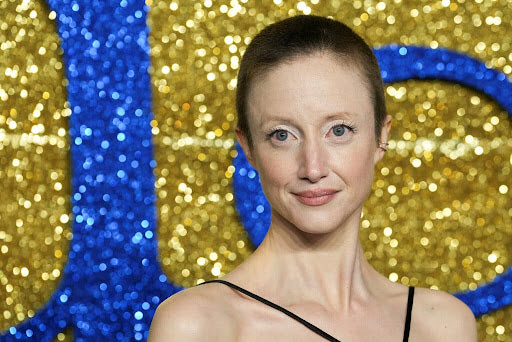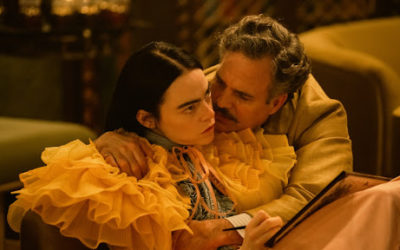Source: Vanity Fair
Whenever the nominations for the Academy Awards (or any major film award ceremony for that matter) are announced to the public, there’s almost a guarantee that the films and individuals named will lead to some kind of backlash in one way or another. Sometimes it’s because a name that many felt should have been a surefire inclusion was somehow left out in a given category, while other times a name that many didn’t think deserved such a presence ended up there anyways (in many instances actually, both of these reasons can apply). This year has proven to be no exception; when the nominations for the 95th Academy Awards were revealed on Tuesday, January 24th, several voices made their opinions known regarding their disappointment, if not outrage, over who and what had (or had not) been announced. Many people, for example, expressed great frustration over the lack of women in the Best Director category despite such names as Sarah Polley for “Women Talking” and Charlotte Wells for “Aftersun” being among those most discussed for a potential nomination. Others, meanwhile, made their bafflement over films like “RRR” receiving very little, if any, nominations despite their overwhelming popularity wth critics and audiences (the aforementioned Telugu-language film only received a Best Original Song for the song “Naatu Naatu”, even though many had been hoping for it to break into the Best Picture category among others).
Then there is the category of Best Actress, which has proven to be perhaps the biggest source of controversy due to who was (or was not) nominated. Granted, some of the nominees, including Cate Blanchett for “Tar” and Michelle Yeoh for “Everything Everywhere All at Once”, were expected to appear in this category, and many analysts have predicted either one of these two actors to take the prize on March 12th. The same cannot be so easily said for the other three nominees though; Michelle Williams’ performance in “The Fabelmans”, though well received, has been deemed by many to be more fitting of a Best Supporting Actress nomination, while the nomination of Ana de Armas’ portrayal of Marilyn Monroe in “Blonde” has proven to be baffling for many given the film’s generally negative reception. Neither of these nominations, however, match the bizarre controversy that has surrounded the fifth nominee in this category, that of Andrea Riseborough for “To Leslie”, one that ultimately led to an internal investigation within the Academy.
All things considered, the independent drama would probably not have received much attention from the Academy, let alone an official nomination, under normal circumstances. First premiering at the South by Southwest Film Festival last March before receiving a limited theatrical release in October from distributor Momentum Pictures, “To Leslie” initially left very little impression at the box office, earning just over $27,000 in ticket sales. In theory, this should have made its chances of an Oscar nomination all but impossible, so how did Andrea Riseborough’s performance in the film wind up in the Best Actress category? As is often the case with most unexpected success stories nowadays, social media was a significant factor, with notable celebrities like Jennifer Aniston and Edward Norton vouching for the film and Riseborough on their respective platforms and encouraging Academy voters to take the film into serious consideration. It’s a far from the heavily financed and marketed campaigns that often come about when most studios attempt to sway voters into nominating whatever films they’re pushing to receive awards recognition, with many of the campaign’s supporters describing at a “grassroots effort” that opted to use whatever celebrity connections it had rather than spend more money than it had on screenings, advertisements, or other promotional strategies.
As questionable as these methods are, none of them seemed to go too far against the Academy’s rules for campaigning, but there soon reached a point where a look into the campaign for “To Leslie” did start to raise some eyebrows. Among the questionable “social media tactics” cited by the Academy were those of Frances Fisher, who, in her promotion of the film, was said to have not simply praised Riseborough’s performance, but also encouraged her fellow Academy voters to turn their attention away from “locks” like Danielle Deadwyler for “Till” and Viola Davis for “The Woman King” so that Riseborough could receive greater focus.
Academy rules state that “any tactic that singles out ‘the competition’ by name or title is expressly forbidden”, so Fisher supposedly broke these rules through her endorsement of Riseborough and her dismissal of Deadwyler and Davis, neither of which ended up in the Best Actress category despite their “locks”. The absence of both David and Deadwyler has in fact made Riseborough’s nomination all the more controversial, with many accusing the Academy of overlooking the acclaimed performances of two black actresses in favor of a white woman’s comparatively obscure performance.
In spite of all the controversy and backlash, has the “To Leslie” campaign done anything that makes its nomination deserving of a retraction? According to the Academy, it has not, with CEO Bill Kramer releasing a statement claiming that “the Academy has determined the activity in question does not rise to the level that the film’s nomination should be rescinded”, thereby permitting Riseborough’s nomination to remain in place. Kramer did, however, note the questionable nature of the social media tactics used to promote the film, and that such concerns would be addressed as the Academy pushes to make sure that such campaigns remain fair and ethical. “Given this review, it is apparent that components of the regulations must be clarified to help create a better framework for respectful, inclusive, and unbiased campaigning,” Kramer claims. “These changes will be made after this awards cycle and will be shared with our membership. The Academy strives to create an environment where votes are based solely on the artistic and technical merits of the eligible films and achievements.”
In the end, all the fuss surrounding “To Leslie” and leading actress Andrea Riseborough may not have deprived them of their Academy Award nomination, but it could very well change the relationship between awards voting and social media as it currently known.




